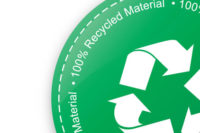Portola reports environmental gains
Closure manufacturer reports environmental improvements in energy and packaging source reduction, recycling and office materials.
Closure manufacturer Portola Packaging Inc., Naperville, Ill., has disclosed notable environmental improvements in energy and packaging source reduction, recycling and office materials.
Closure manufacturer Portola Packaging Inc., Naperville, Ill., has disclosed notable environmental improvements in energy and packaging source reduction, recycling and office materials.
Portola reports a 10.5% reduction in energy usage in 2010, compared to 2009. The significant decrease is a result of conservation efforts at the company’s eight North American manufacturing facilities.
In addition to energy reduction, Portola plants recycled in excess of 2 million pounds of material, including plastic regrind, corrugated, paper, aluminum and steel. An additional 500,000 pounds of paper were recycled from its various North American offices, bringing the overall company total to more than 2.5 million pounds.
“Portola’s goal is to minimize its environmental impact by creating sustainable, value-added manufacturing and product solutions,” says Kevin Kwilinski, president and chief executive officer. “We believe in using natural resources responsibly to manage energy use and reduce waste wherever possible. We also believe in partnering with our customers and communities to help make that happen.”
Contributing to the energy conservation efforts were more than 20 different initiatives across all eight plants. These included the purchase of new equipment with reduced energy requirements, conversion from injection to compression molding for specific products, implementation of productivity improvements which reduced energy load, shut-off protocols for idle equipment, plant and office heating/cooling conservation, and others.
Portola’s material recycling efforts included production scrap/regrind (mostly high-density polyethylene and polypropylene), corrugated shippers, hydraulic oil waste, scrap metal, aluminum cans, paper, etc.
The company also is investigating alternative packaging approaches that would enable 30% to 35% more closures per truckload, reducing fuel and packaging material costs by more than $1 million annually. Additionally, all of the corrugated cases Portola purchases have been certified under the standard requirements of the Sustainable Forestry Initiative.
Looking for a reprint of this article?
From high-res PDFs to custom plaques, order your copy today!





